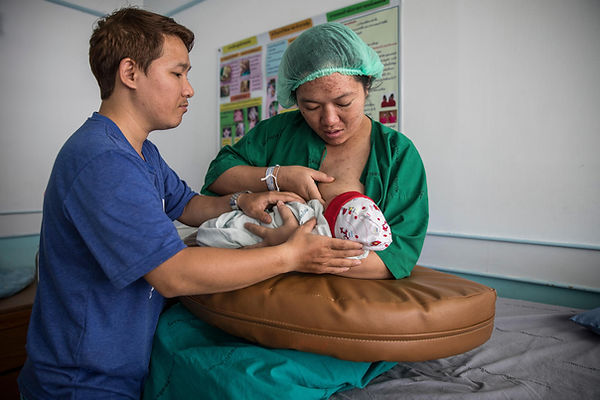The Family Initiative has been tracking and reporting on research on fathers in neonatal care since 2015 on FamilyIncluded.com. It became apparent that some interesting and new ideas were emerging in newly published articles. In response to this, the Family Initiative approached all the authors and proposed a joint effort to report on all the new evidence.
We have since published an article in the Journal of Neonatal Nursing - Fathers in neonatal units: Improving infant health by supporting the baby-father bond and mother-father co-parenting.
This discusses the findings from 50 pieces of research in recent years on fathers in neonatal units.
The principle finding is that understanding and supporting father-infant attachment and supporting co-parenting improves the health of the baby and helps both parents to care for the baby and for each other.
RESEARCH REVIEW
BREASTFEEDING
For three years we have monitored and reported on research on father support for breastfeeding
and we have written a White Paper on what research says for practice.
A FATHER LED APPROACH IN UGANDA

The project is based on what research has shown works considerably better than the traditional approach of just engaging with mothers:
-
Inform fathers of the value of breastfeeding to their babies and their wives/partners. Inform them of how fathers influence breastfeeding.
-
Support mothers and fathers to work together as a team around breastfeeding. That means mutual support and respect for individual autonomy.
-
Promote the baby-father bond - this actually improves mother-baby bonding and breastfeeding.
Photo above: Perapat, 32, helps his wife, Wanichcha, to breastfeed their one-day-old son, nicknamed John. "The first moment I saw him, my tears welled up. I think he looks like my wife.” (Chiang Mai, Thailand). © UNICEF/UN0203786/Zehbrauskas
We have also carried out research in Uganda to explore why current approaches to engaging fathers are not sustained beyond pilot projects. A key problem is that these programmes are not designed and delivered with fathers but are designed as things done to them from above. Fathers tend to be seen as a problem to be fixed, but evidence suggests that fathers can lead change.
To this end we are applying two principles:
-
Design and build the service with fathers.
-
Reach out to fathers through fathers who already live the new social norm characterised by caring and equality with women.
WORLD ALLIANCE FOR BREASTFEEDING ACTION
In 2018 we issued a joint Fathers Day statement with WABA.
"The love of a father is a foundation for the future of a child. When mothers, fathers and family members work as a team around the care of children, it creates a haven within which these children can grow and thrive as mentioned in the adage 'it takes a village to raise a child'".
